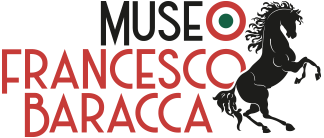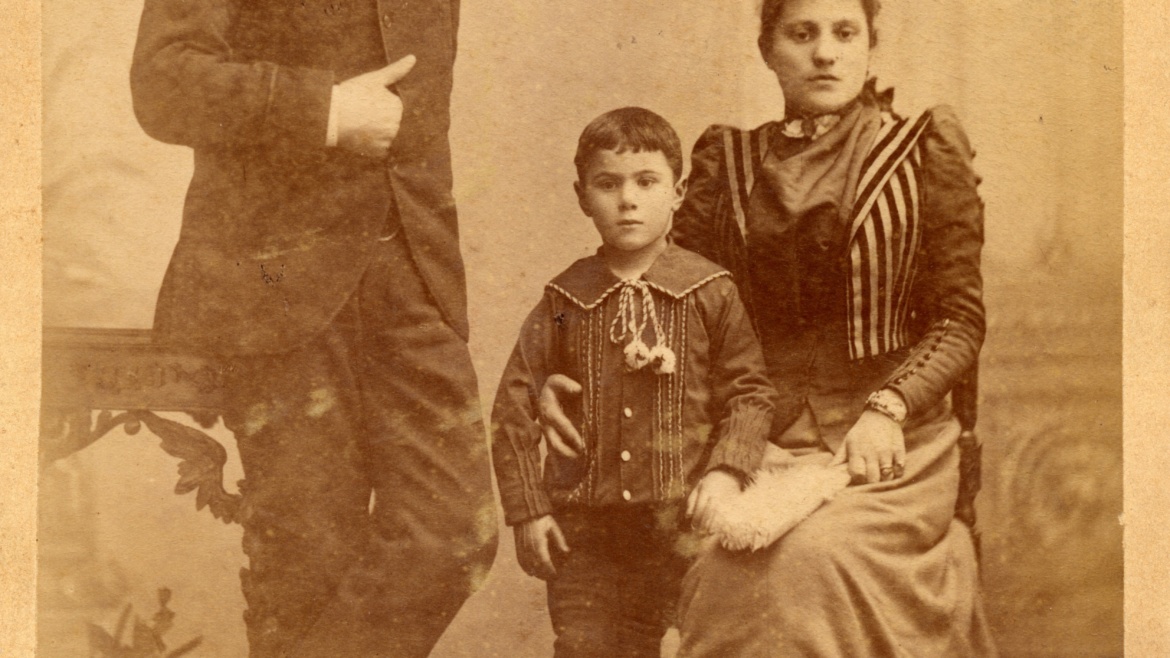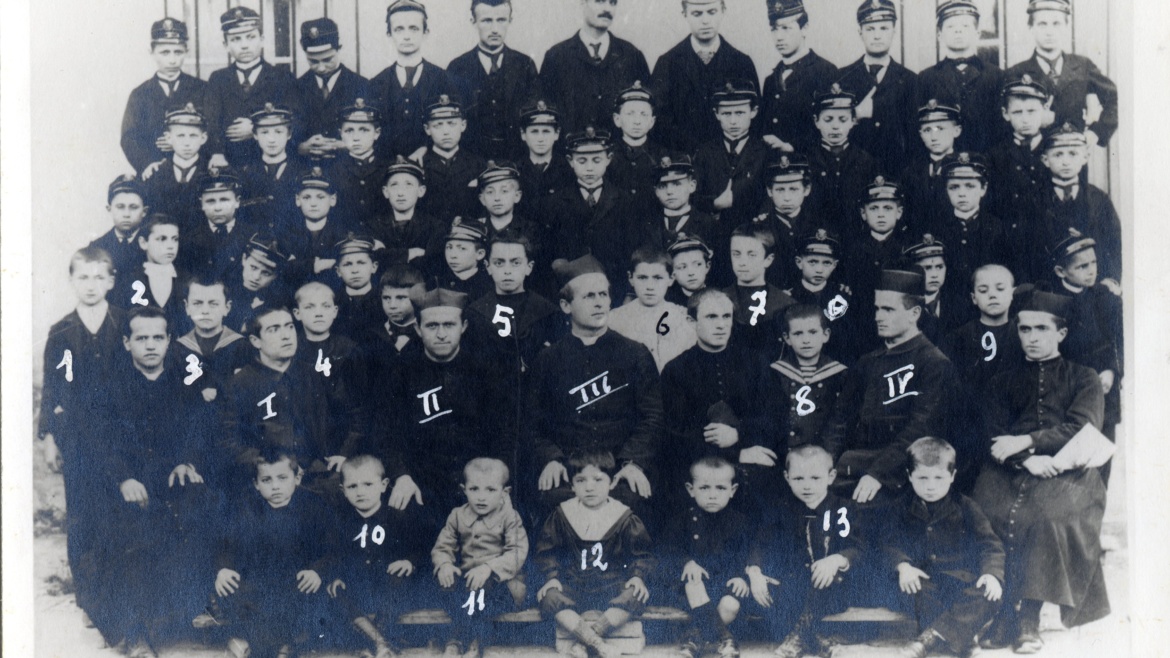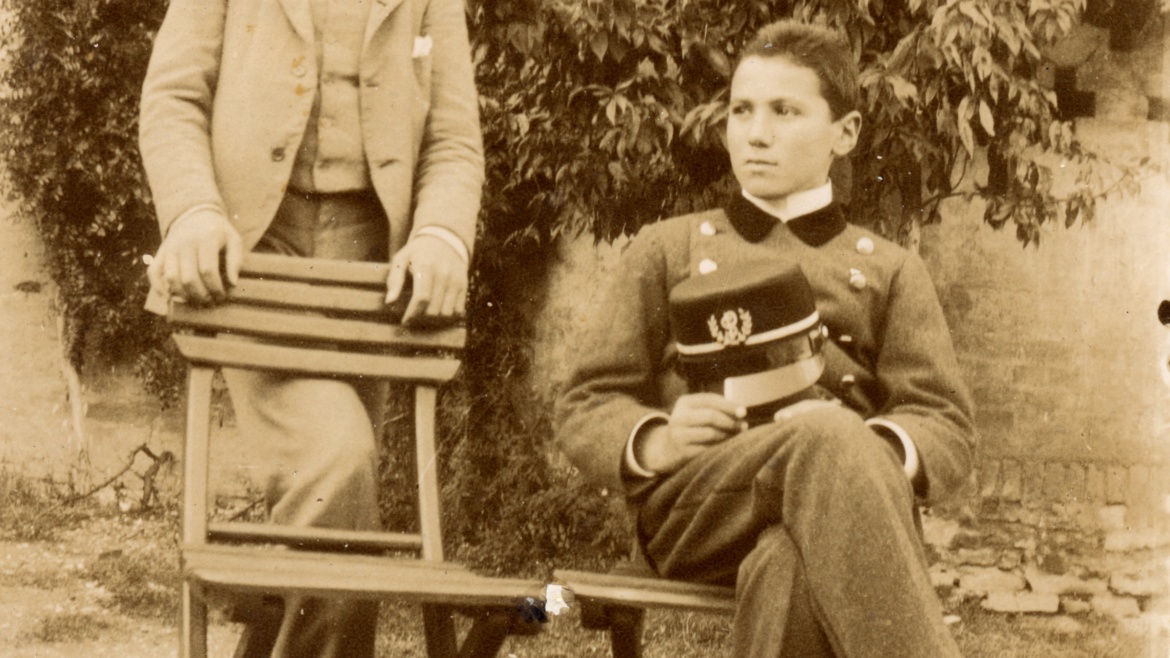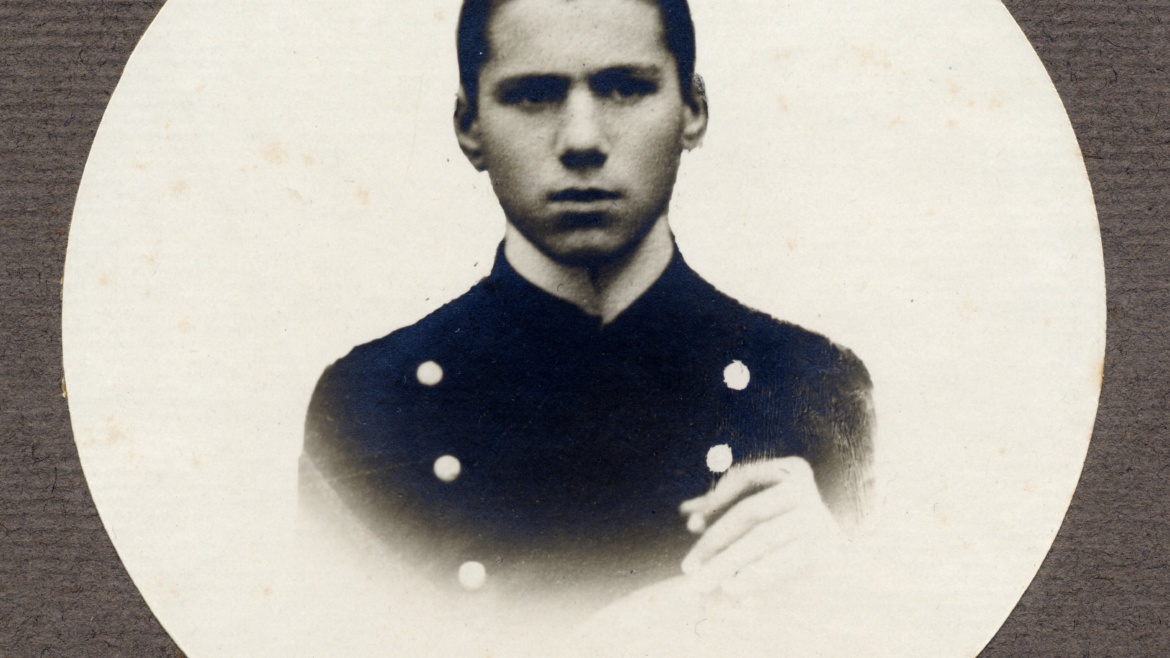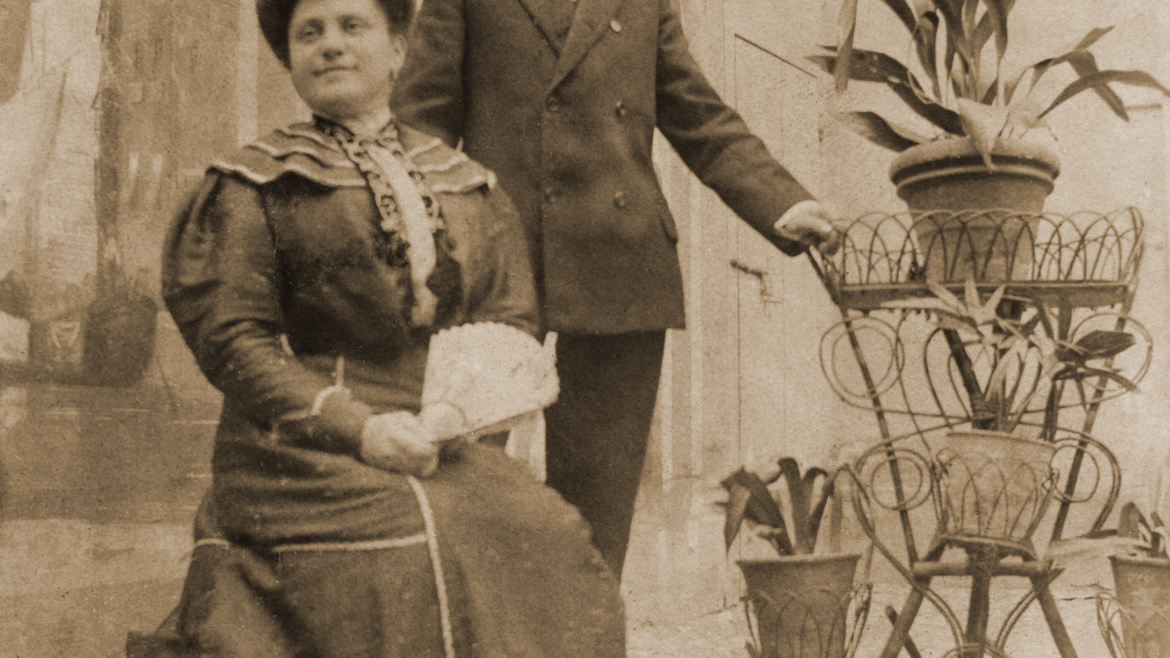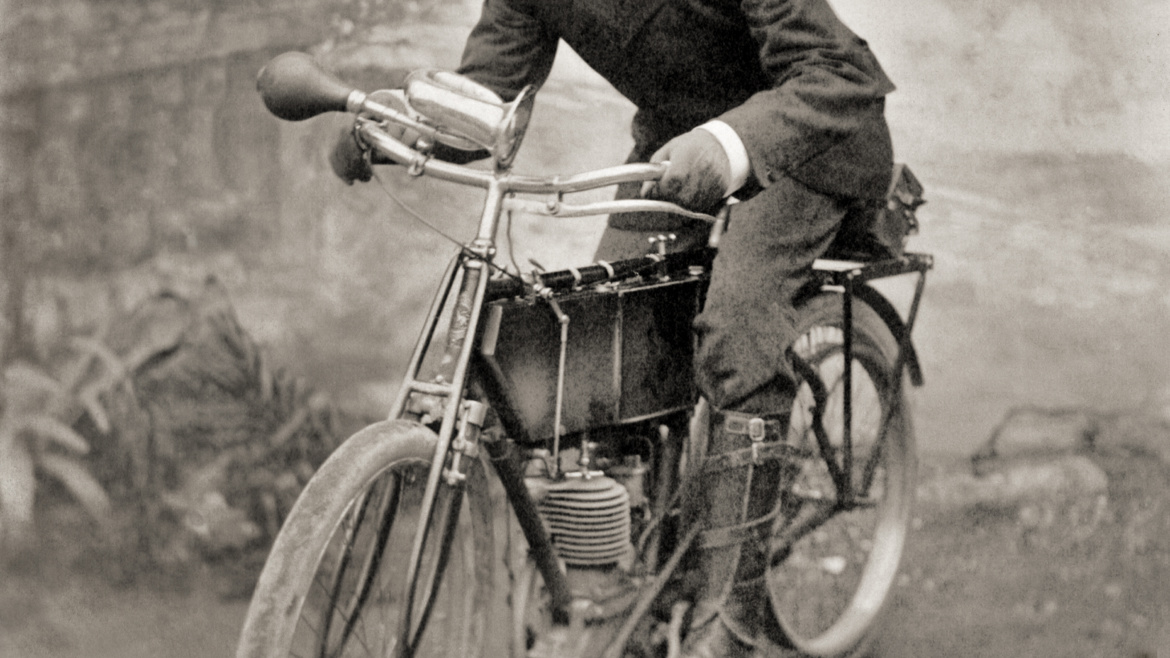The young Francesco
As stated by the Register of Births of the Municipality of Lugo, at 4.30 p.m. on the 9th of May 1888 at no. 306 Via del Corso, today’s Via Garibaldi, a baby boy was born with the names Francesco, Luigi and Giuseppe.
His parents, the young Countess Paolina Biancoli and the landowner and wine merchant Enrico Baracca, resided together with the latter’s siblings and mother in the elegant building now known as Palazzo Tamba.
In 1894, Francesco was enrolled in the first grade at the Salesian Institute in Lugo. This was not the only novelty that “Cecchino” had to face, in fact in the same year he and his parents moved to the new building on the parallel Via Fermini (today’s Via Baracca), following the marriage of his paternal uncle Angelo and the division of property. Enrico also had a new building built, located between the family cellars and the embankment of the Senio river, in San Potito. This country villa became the usual summer residence, where the family used to stay until the end of the grape harvest.
Having finished primary school with excellent grades, Enrico and Paolina decided to enrol their only son at one of the most prestigious Italian schools of the time, the boarding school of the Badia Fiesolana run by the Scolopian Fathers. In October 1900, Francesco left by train for Fiesole, without imagining that this temporary separation from the family environment would turn out to be definitive in the future, interrupted first by holidays and then by military leave.
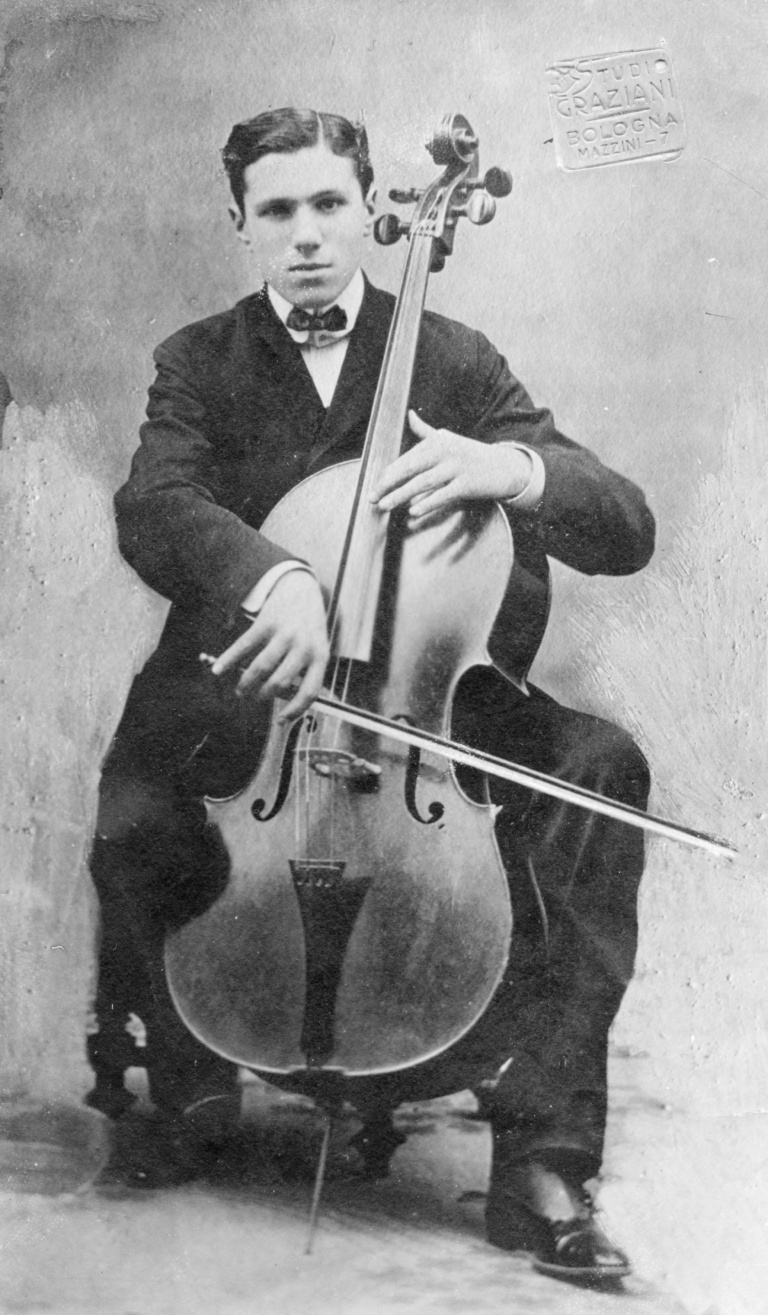
The bond with friends and relatives continued to be strong, thanks to visits and a dense correspondence, mainly with his mother Paolina. Life at the boarding school, characterised by long hours of study and undoubted discipline, allowed the young students to go out for a walk at times, and soon Baracca obtained his parents’ permission, despite his apprehensive mother’s reluctance, to take riding lessons. Francesco, during his years at the Badia, also began to play the cello, an activity that found favour with Paolina, who could thus count on her son’s accompaniment for her piano playing. Other hobbies consisted in playing tombola and, above all, collecting postcards and stamps, with a predilection for foreign ones.
The summer holidays in San Potito became an opportunity to let off steam, where he could enjoy frolicking in the surroundings on his bike, horseback and, later, motorbike.
At the end of summer 1904, Francesco moved to no. 4 Via Parione, Florence, to Mr. and Mrs. Martoni, family friends and owners of a pastry shop, a fact that was certainly appreciated by the young man. Leaving the Badia, Baracca enrolled at the Liceo Classico Dante.
Enjoying more freedom than during his boarding school years, Francesco began to taste the Florentine social life: evenings at the theatre or cafés, opera performances and celebrations during events such as Carnival.
However, all this did not affect his school results and commitment, graduating with good grades in July 1907.
After the usual holidays at San Potito, the time had come for Francesco to open a new and decisive chapter in his life. Finding an ally in his mother Paolina, Baracca managed to overcome his father’s resistance and in the autumn 1907 he crossed the threshold of the Military School of Modena.


